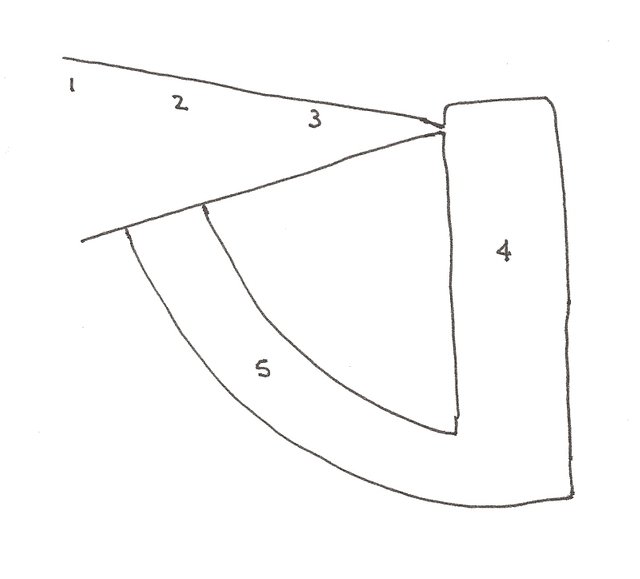(this is an experiment in curation. assume there are "spoilers," but IMHO this novel is impossible to spoil because it's very, very difficult to explain what it's all about, which is what makes it interesting in the first place. enjoy!)

(image from nicholasjparr.com)
2666
From Biblioklept (https://biblioklept.org/2009/01/22/2666-roberto-bolano/)
"There are two major, intertwined plot threads in 2666, one about a series of gruesome rapes and murders in the fictional city of Santa Teresa, Mexico, and the other concerning an obscure German writer with the improbable name Benno Von Archimboldi. These two threads weave through the labyrinth that is 2666, connecting the many themes and tropes and moods and tones of this massive novel."
The Part about The Critics
From Goodreads, review by Cymru Roberts (http://www.goodreads.com/book/show/16481836-2666-part-1)
"The fantasy-characters of the critics have what a naïve, pre-coup Bolaño must have dreamed of as ideal lives, jet setters with disposable income, the luxury to have refined tastes, who are published often, and get to devote their lives to the obscure literature of a wildcard that goes mainstream. How they actually feel about Archimboldi is never explicitly mentioned, except for the comment of his “delicate” descriptions of pain and shame [which is Bolaño talking about himself]."
The Part about Amalfitano
From The Mookse and The Gripes (http://mookseandgripes.com/reviews/2014/10/03/2666-read-along-part-2-the-part-about-amalfitano/)
"Interestingly, almost the first half of this relatively short part is not about Amalfitano or Rosa [his daughter] but is about the woman who abandoned them years before: Lola. And though we met Amalfitano in Part 1, for me the more substantive links to Part 1 are between Lola and the critics. Lola’s quest for the poet — her own literary obsession — brings to mind the critics’ search for Archimboldi; the poet residing in an insane asylum brings to mind the painter who cut off his hand. Lola writes letters to those she abandoned, like Liz Norton. Yet the story here goes in a different direction: Lola is mentally unstable from the get-go (probably more insane than the poet she visits), and she ends up wandering around in cemeteries."
The Part about Fate
From Dolce Bellezza (https://dolcebellezza.net/2014/01/31/roberto-bolanos-2666-the-part-about-fate/)
"Quincy Williams is called Oscar Fate. He is a political journalist from New York sent by his editor to cover the Pickett-Fernandez fight in Santa Teresa. But, he’d rather write about the women being killed. He proposes “a sketch of the industrial landscape in the third world, a piece of reportage about the current situation in Mexico, a panorama of the border, a serious crime story, for fuck’s sake” (Bolano 295). His editor isn’t interested. Fate meets several people in this section; one of them is Guadalupe Roncal, a Mexican reporter. The others include Rosa Amalfitano, daughter of Amalfitano from Part 2, and her boyfriend, Chucho Flores."
The Part about The Crimes
From Biblioklept (https://biblioklept.org/2009/01/22/2666-roberto-bolano/)
"Callous or cynical readers, looking for a simple answer to “Whodunnit?” will miss the multiplicity of answers that Bolaño provides, which might be boiled to: We all did it. We are all responsible for these crimes."
From Eveming All Afternoon (http://www.eveningallafternoon.com/2009/09/2666-the-part-about-archimboldi-part-5.html)
"I wouldn't describe the structure of 2666 as circular. In fact, I'd say it looks more like this:

The first three books tighten into an ever-more tense and surreal vortex, narrowing uncomfortably toward the mysterious wrongness in Santa Teresa, Mexico, which is related to the sexual homicides being committed there. Just as the third part reaches a climactic pinhole, the narration suddenly widens, becomes a stark, straightforward descent through a pile of dead bodies, the hardboiled chronicling of the female corpses of Santa Teresa, and of the inability of police, private citizens, detectives and seers to stop the perpetual appearances of more. As opposed to the increasing tension of the first three parts, I experienced the fourth part to be even throughout, tension released and stark reality confronted. Then, in The Part About Archimboldi, the narrative turns a sharp corner into something more like a traditional bildungsroman, in which a young boy grows up, lives his life and finds his calling: a calling which gradually curves toward the literary world of the first part, and a life which, even more tangentially, intersects with the Santa Teresa killings."
The Part about Archimboldi
From The Valve (http://www.thevalve.org/go/valve/article/2666_part_5_archimboldi/)
"His birth-name is Hans Reiter. The son of a one-legged First World War veteran and a one-eyed woman, he grows up near the Prussian North Sea coast. As a boy he is fascinated with the bottom of the sea; he dives repeatedly (on two occasions he comes close to drowning), reads about seaweed, daydreams about the submarine world. He grows very tall, and remains an odd, singular, friendless child. Come WWII, he is mobilized into the regular German army and fights mostly on the Eastern Front—he is even awarded the Iron Cross for bravery, although his bravery is actually a kind of passive recklessness predicated upon a state of mind that would welcome death."
From Nicolas J. Parr (https://nicholasjparr.com/2016/07/04/bolanos-2666-the-part-about-archimboldi/)
"But the introduction to Hans Reiter is an almost pleasant change of pace after the bludgeoning Part about the Crimes. The Part about Archimboldi reads like a fairy-tale (or perhaps a more accurate term I’ve seen used for this part, a bildungsroman, a coming-of-age tale of German origins). We are introduced to the strange child of a one-legged man and a one-eyed woman, taller than boys twice his age and obsessed with seaweed, feeling more at ease underwater than on land. As time passes Bolaño fills Reiter’s life with a plethora of strange and fascinating characters and relationships (some indirect)."
Congratulations @berksaustins! You have completed some achievement on Steemit and have been rewarded with new badge(s) :
Click on any badge to view your own Board of Honnor on SteemitBoard.
For more information about SteemitBoard, click here
If you no longer want to receive notifications, reply to this comment with the word
STOPIf you want to support the SteemitBoard project, your upvote for this notification is welcome!
Downvoting a post can decrease pending rewards and make it less visible. Common reasons:
Submit
Have you read any of Bolaño's other works? What are your favorites?
Downvoting a post can decrease pending rewards and make it less visible. Common reasons:
Submit
I have. He was the man. It's hard to pick favorites. The Savage Detectives was terrific. I wanted to be all of the characters. I wished my life was that interesting. Nazi Literature in The Americas as well. I have a Spanish copy that I'm trying to teach myself Spanish with. I read the language a heck of a lot better than I speak it.
Downvoting a post can decrease pending rewards and make it less visible. Common reasons:
Submit